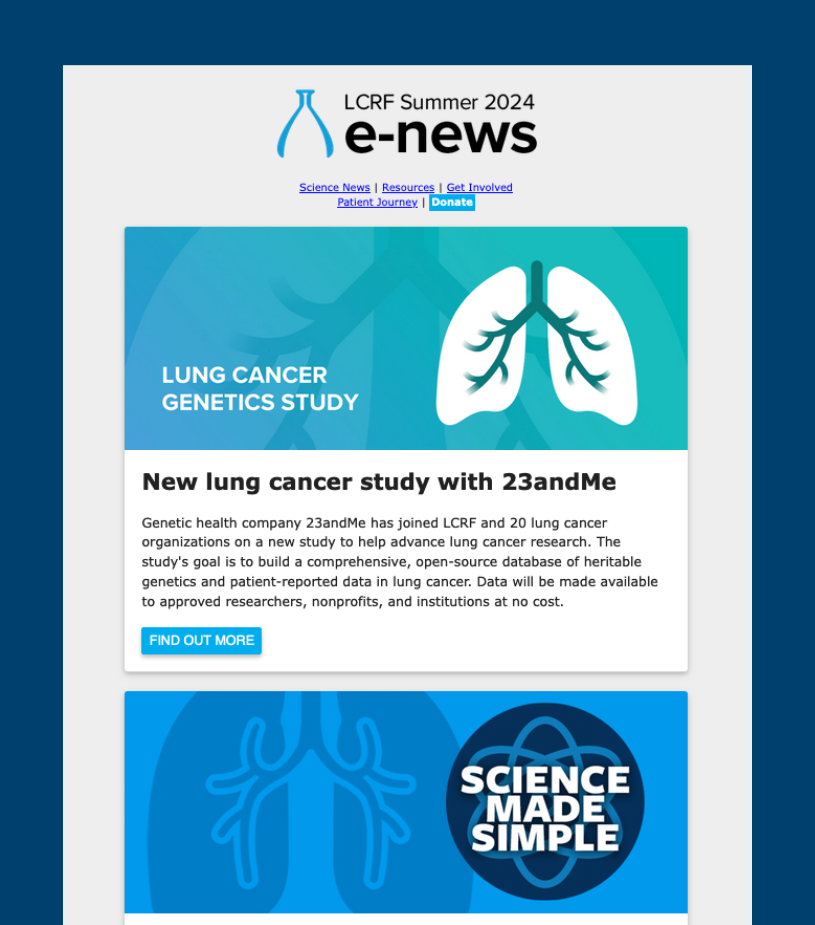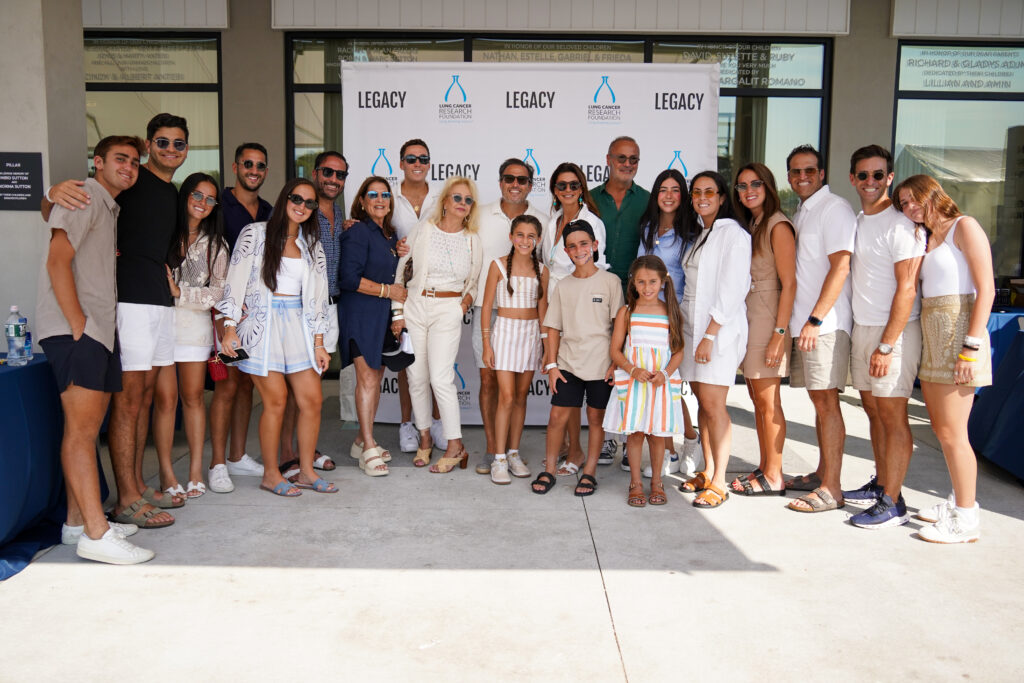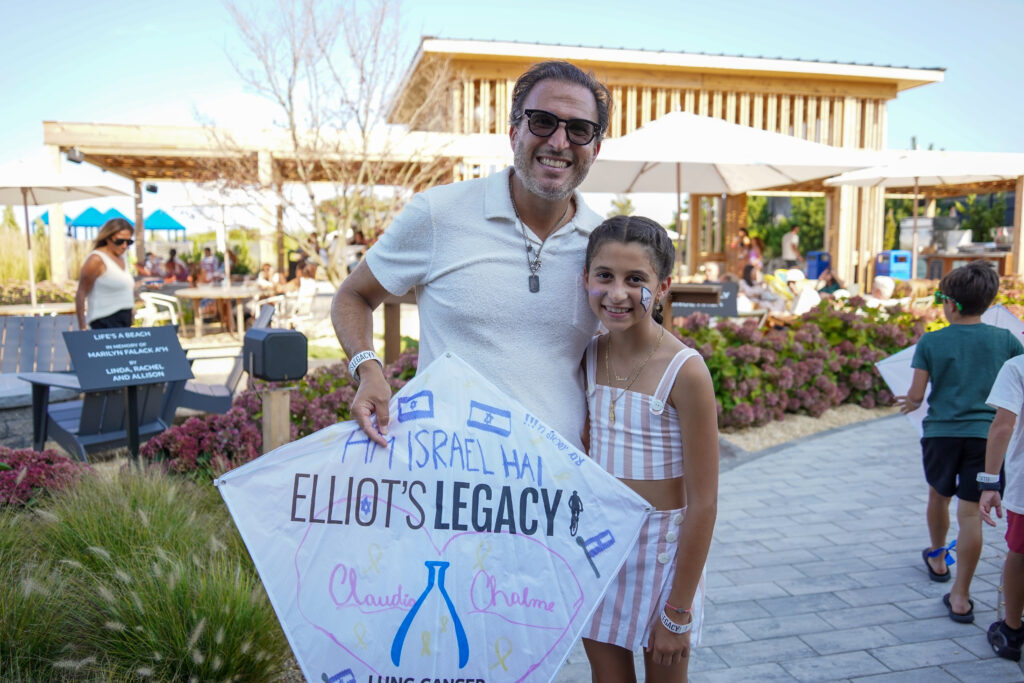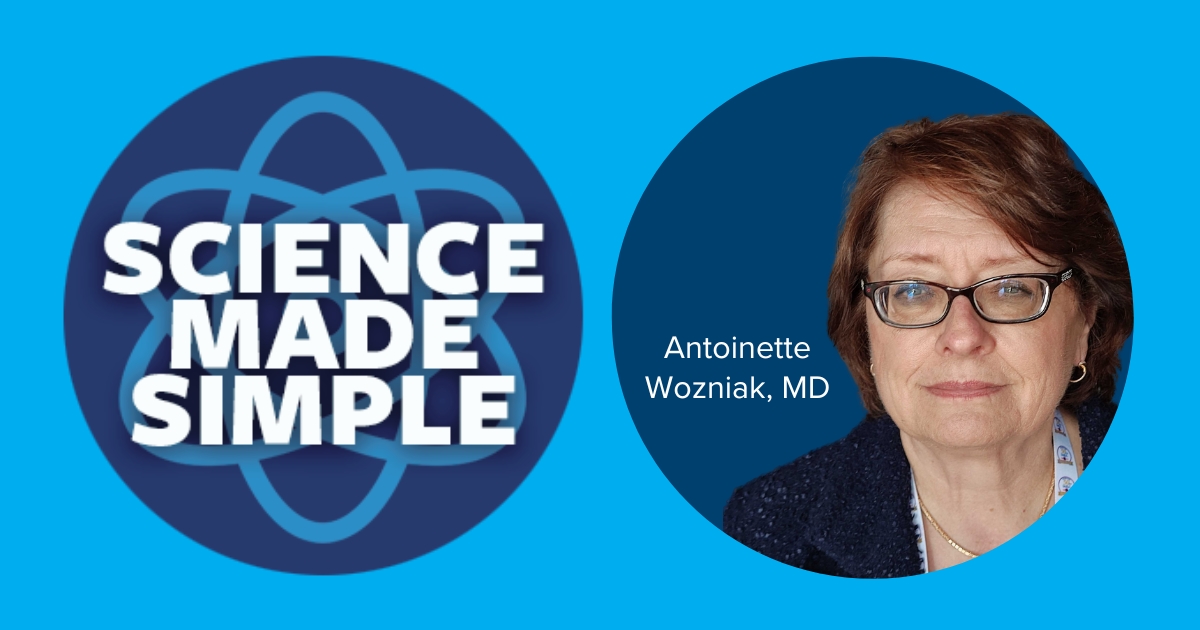Study aims to build a comprehensive, open-source database of heritable genetics and patient-reported data in lung cancer
New York, NY (July 25, 2024)—The Lung Cancer Research Foundation (LCRF), in collaboration with 23andMe Holding Co. (Nasdaq: ME), a leading genetic health and biopharmaceutical company, and 20 lung cancer advocacy organizations, today announced a new study to help advance research in lung cancer. The focus of the Lung Cancer Genetics Study is to better understand the genetics of people with lung cancer in order to improve detection, risk reduction, and care. While recent developments in tumor genetic testing and targeted therapies have provided hope and years of survival to many lung cancer patients, lung cancer remains the number one cause of cancer deaths in both men and women in the United States. Yet, much remains unknown about the disease and its causes.
“It is powerful to see the entire lung cancer community unite behind the Lung Cancer Genetics Study,” says Aubrey Rhodes, LCRF executive director. “Understanding genetic factors associated with lung cancer, and enabling researchers worldwide to securely access the data, will go a long way to improving early detection and treatment outcomes. LCRF is proud to be a part of what will certainly be an important initiative for lung cancer research.”
The de-identified data from the study will be made available to approved researchers, and access to the scientific database will be available to nonprofit researchers and institutions at no cost.
Sobering lung cancer statistics only tell part of the story
Despite advances in treatment options, lung cancer remains a critical area of unmet need:
- In 2020, lung cancer took more lives in the United States than breast, colorectal, and prostate cancers combined.
- One in 16 people in the United States will be diagnosed with lung cancer in their lifetime.
- It is estimated that in 2024, 234,000 new people will be diagnosed with lung cancer in the United States.
- While lung cancer accounts for 12% of all new cancer diagnoses, it accounts for 20% of cancer deaths.
- Despite being the deadliest cancer, lung cancer research is underfunded compared to other cancer types.
- Early detection of lung cancer through screening can dramatically improve the long-term survival rate. Only 25% of all people diagnosed with lung cancer will survive 5 years or more, but for those whose cancer was diagnosed through annual screening by CT scan, the 20-year survival rate is 81%.
- In people diagnosed at 55 years of age or younger, lung cancer is more common in women than men. Among people with lung cancer who have never smoked, approximately two-thirds are women, making women who have not smoked more than twice as likely to develop lung cancer as men who have not smoked.
Behind every devastating statistic are people from communities across the U.S. impacted by lung cancer. Through this collaboration, LCRF and other advocacy organizations, lung cancer survivors and advocates, and 23andMe hope ultimately to help advance research toward finding a cure for this disease.
“LUNGevity Foundation is excited to partner on this community-driven project,” said Upal Basu Roy, Vice President of Research at LUNGevity Foundation. “As a researcher and a patient advocate, I’m most excited about how the data collected in this study could be leveraged to help patients in the future. For example, it could help researchers identify new drug targets and mechanisms for drug development or find ways to address side effects proactively.”
This study includes the following collaborators: ALK Positive, Biomarker Collaborative, BRAF Bombers, EGFR Resisters, Exon 20 Group, Free ME from Lung Cancer, GO2 for Lung Cancer, The Happy Lungs Project, International Cancer Advocacy Network, KRAS Kickers, Lung Cancer Foundation of America, Lung Cancer Research Foundation, LUNGevity Foundation, MET Crusaders, NTRKers, Oncogene Cancer Research, PDL1 Amplifieds, RET Positive, RET Renegades, The ROS1ders, and Troper Wojcicki Philanthropies.
“Studying the genetics of lung cancer can help us understand risks, improve early detection, and develop better treatments. This collaborative effort unites patients, advocates, doctors, and researchers,” said Jill Feldman, patient advocate and co-founder of the EGFR Resisters. “By making the data securely accessible to researchers worldwide, the Lung Cancer Genetics Study increases our chances of breakthroughs that can save lives.”
Enhancing lung cancer research
The 23andMe research platform will enable consented participants to come together to provide critical data for scientists studying lung cancer. Research data will include genetic information and self-reported information about each participant’s unique experiences (using responses from online surveys), as well as additional data sources such as medical records and tumor biomarker information. Through this study, advocacy organizations, advocates, and 23andMe aim to enhance research into lung cancer by bringing together a large group of people to better understand how genetics may influence lung cancer, expanding the geographic reach of the research study by enabling participation from home, and removing some of the time and cost barriers that can slow progress.
How this study can help further research
The goal of the study is to recruit 10,000 people who have been diagnosed with lung cancer, with no restrictions on the type of lung cancer, stage of disease, gender, smoking status, biomarker, or other variables. The lung cancer genetics study is recruiting individuals who are 18 years or older, live in the United States, and have been diagnosed with lung cancer. Participants in the study can receive the 23andMe kits at no cost.
“Through the launch of the Lung Cancer Genetics Study, we hope to fill an unmet need for a comprehensive database that bridges the gap between genetic, clinical, and patient-reported data,” said Anne Wojcicki, Co-Founder and CEO of 23andMe. “Because lung cancer affects people from all communities, it’s important for this research to truly reflect the diversity of those impacted by the disease. This collaborative effort unites survivors, caregivers, researchers, and advocates who are all dedicated to improving the treatment and care of lung cancer.”
The Lung Cancer Genetics Study is made possible by support from Troper Wojcicki Philanthropies (TWP). Troper Wojcicki Philanthropies deploys philanthropy and mission-related investments to organizations that are accelerating cancer research, tackling climate change, and advancing human rights. Since 2006, TWP has committed more than $100M to researchers, academics, and entrepreneurs committed to making a positive impact on the world. For the last 15 years, 30% of TWP’s funding has been dedicated to advancing cancer research.
For more information on the study, please see the Lung Cancer Genetics Study landing page.
###
About the Lung Cancer Research Foundation (LCRF)
The Lung Cancer Research Foundation® (LCRF) is the leading nonprofit organization focused on funding innovative, high-reward research with the potential to extend survival and improve quality of life for people with lung cancer. LCRF’s mission is to improve lung cancer outcomes by funding research for the prevention, diagnosis, treatment, and cure of lung cancer. To date, LCRF has funded 419 research grants, totaling nearly $44 million, the highest amount provided by a nonprofit organization dedicated to funding lung cancer research. For more information about the LCRF grant program and funding opportunities, visit LCRF.org/research.
About 23andMe
23andMe is a genetics-led consumer healthcare and biopharmaceutical company empowering a healthier future. For more information, please visit www.23andMe.com.
Contact:
LUNG CANCER RESEARCH FOUNDATION
Sheila Sullivan
Sr. Director, Marketing & Communications
ssullivan@lcrf.org











